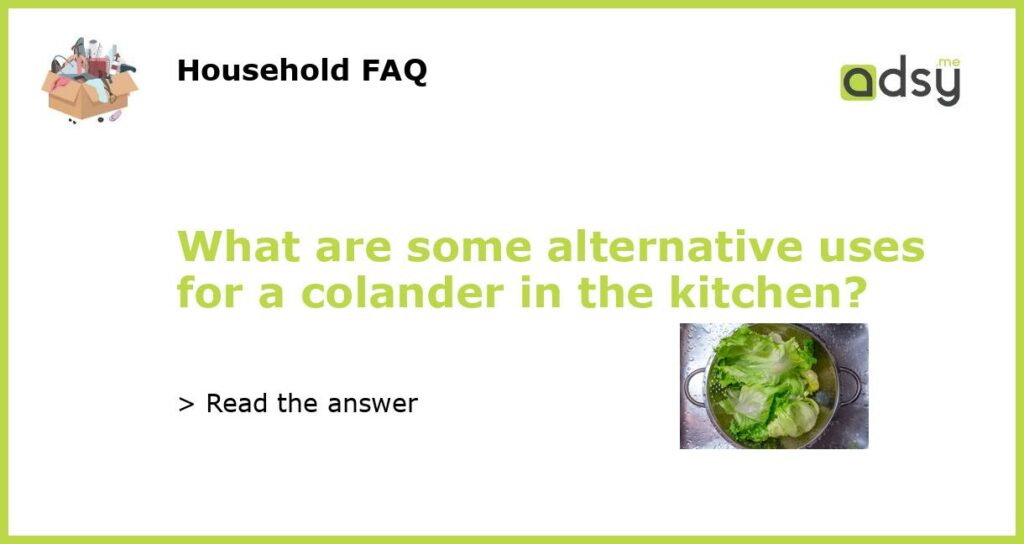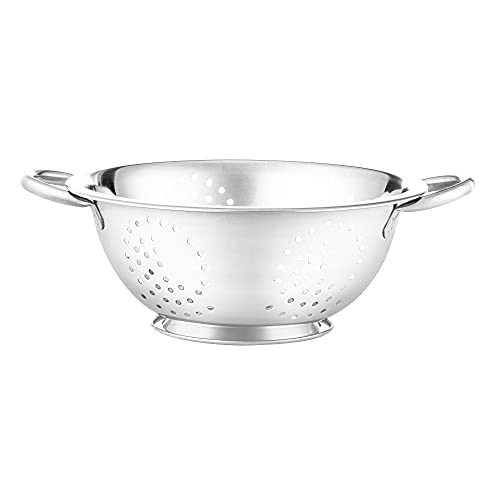Draining grease from cooked meat
One alternative use for a colander in the kitchen is to drain grease from cooked meat. Instead of using a paper towel or straining the meat and grease through a fine mesh sieve, place the cooked meat in a colander and let the excess grease drip through the holes. This method is especially helpful when cooking ground beef or sausage, where excess grease can accumulate quickly and make the dish overly greasy.
Straining oil after frying
After frying food in oil, the oil can become murky and filled with small bits of fried batter or food. Instead of throwing the oil away, strain it using a colander. Place the colander over a heat-resistant container and pour the oil through the holes. This will remove any bits of food and clarify the oil for future use. This method can save money on buying new oil for each fry, as well as reduce waste.
Rinsing fruits and vegetables
Another alternative use for a colander is to rinse fruits and vegetables. Instead of using your hands to rinse produce under running water, place the fruits or vegetables in a colander and run water over them. This method ensures that every inch of the produce is rinsed, as well as saves water by efficiently rinsing multiple pieces at once.
Preparing homemade broth
When preparing homemade broth, a colander can come in handy for separating the solids from the liquid. After simmering the broth mixture for hours, strain the mixture through a colander to remove any bones, vegetables, or other solids used to flavor the broth. This method ensures a smooth and flavorful broth without any lumps or chunks.
As a steam basket alternative
If you do not have a dedicated steam basket for your kitchen, a colander can be used in its place. Simply place the colander over a pot of boiling water and add the food to the colander. Cover with a lid and let the steam cook the food. This method works well for vegetables and can prevent them from becoming overly soggy or overcooked.






